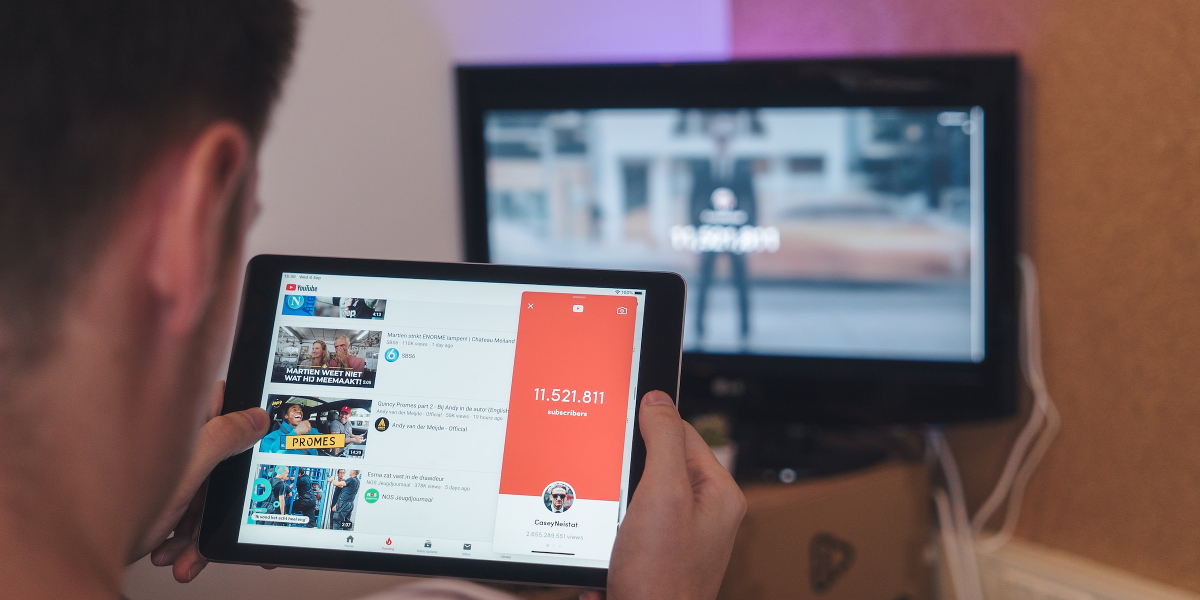 Sky’s CEO Jeremy Darroch has called for the EU to implement stricter regulations against US tech companies, claiming that they are given lenience which creates an uneven playing field and makes it tough for European broadcasters to compete. Darroch attacked the current lack of regulation in a speech at Tallinn Black Nights Film festival yesterday evening, which was followed up today with an opinion piece posted to Sky’s website in which he suggested that there should be a set of principles of accountability similar to those outlined by the UK’s Ofcom for broadcasters.
Sky’s CEO Jeremy Darroch has called for the EU to implement stricter regulations against US tech companies, claiming that they are given lenience which creates an uneven playing field and makes it tough for European broadcasters to compete. Darroch attacked the current lack of regulation in a speech at Tallinn Black Nights Film festival yesterday evening, which was followed up today with an opinion piece posted to Sky’s website in which he suggested that there should be a set of principles of accountability similar to those outlined by the UK’s Ofcom for broadcasters.
Darroch took aim at the different standard he feels his company faces compared to US tech companies in terms of business practices, referencing specifically how the likes of Google and Facebook avoid high tax rates in Europe. “We work within the boundaries of the law and employ the people and incur the costs to do so. If we break the rules, like any other business or individual, we are punished,” he said in today’s article. “But when paying taxes, employing people and complying with the law are competitive disadvantages, you know that you have a problem.”
Most specifically though, Darrow said there needs to be more regulation of the content hosted by US media tech companies, specifically referencing YouTube’s brand safety issues and fake news on Facebook.
“We produce at great cost locally based, highly regulated news services with a strong reputation for the fairness and quality of their journalism. Compliance with rules is not a burden but a stamp of quality and trust. And transparency over who produces and funds our news is a fundamental part of an open society and European traditions,” said Darroch in his Tallinn speech. “Contrast this with the global online platforms with their clickbait, bots and fake news. Where there is no regulation, no accountability and little transparency.”
Darroch argued that this directly affects Sky since this unregulated content appears alongside Sky’s own online, and that regulation should reflect the reach and influence these digital platforms have.
The likes of Google and Facebook repeatedly claim that they are working to more effectively monitor their own content; just this week, Facebook explained in a blog post its advertising standards and its criteria for the sorts of ads it allows, and YouTube agreed to meet with the Institute of Practitioners in Advertising (IPA) and the Incorporated Society of British Advertisers (ISBA) to discuss content monitoring solutions. But Darroch says that previous similar promises have not had enough of an effect, and it’s time for governments step in.
He believes that if the EU leads the way in holding digital companies to account then other countries will follow suit, calling for it to simply and quickly establish a set of principles of accountability, or what he called a “digital safety market strategy”.
Previously the EU has acknowledged these problems, but has been largely reluctant to legislate. The European Commission last year issued a communication on online platforms in which it recognised that the role digital platforms play for distribution of content and information has changed, and that the e-Commerce Directive which dictates liability for online content was written at a very different time. However, the communication said there was still broad support for the existing e-Commerce Directive, and that it would continue encouraging self-regulatory efforts from online platforms.
But this attitude may be changing. The EU issued guidelines earlier this year for online platforms to detect and remove illegal content inciting hatred, violence and terrorism online, and threatened to legislate on the matter if companies fail to act. It’s not impossible that the concerns expressed by Darroch around fake news and disturbing content may push the EU to take further regulatory action.




